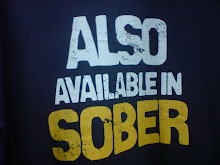I record all my clinical interventions and drugs administered, something I have always done since becoming a front line member of staff. I do it for my own clinical professional development. That way if I haven't performed a skill or given a certain drug for a while I can look back and see exactly when I did.
Whilst I was on stand-by yesterday I added the IV from my first patient and happened to look at the page with all the incidents where I defibrillated, I noticed that I 'shocked' a patient on the 25th of August last year. I thought it was exactly a year ago but then realised that we are in fact September. Doh! That's what shift work does to your brain. I remember this cardiac arrest like it was yesterday for one reason..................it was a success! Now for those of you who are Joe public, pardon the phrase, survival from out of hospital cardiac arrest is poor. Really! you might think, 'but why?' I'll tell you why. A few simple reasons, when we arrive it is very rare that anyone is actually doing anything i.e CPR and the lack of public access defibrillators. Survival rates are on the up with the thanks to more and more defibrillators being made available to the public but we still have a long way to go. Especially when you look at places like Seattle and Las Vegas where either virtually everyone knows how to do CPR or there is an abundance of defibs available. Places like these have some of the best cardiac survival rates in the world.
Back to this job. We're at hospital and have just 'greened up' (made our selves available for calls) when a Cat A comes in, it's a collapse. It takes us 12 minutes to get there and that's with a heavy right foot! We arrive at the location, it's an old church which has been converted into a theatre, and are greeted by several well dressed people. We're ushered onto the stage where there is an unconscious male and two ladies performing CPR on him. They look round and see us coming in and stop CPR, 'Don't stop, carry on!' I say. The patient is Agonal breathing and this is best time to shock a patient. My crew mate then takes over CPR while I switch on the defib and apply the pads. It's a shockable rhythm. I charge up and deliver a 150 joule shock. A flat line appears and CPR is restarted. Within 60 seconds the patient starts to try and breath so we check a pulse. It's fast and faint but we've got one. I then start to ventilate him as my crew mate is getting a line in. The patient is now breathing adequately on his own and can squeeze my hands when requested. We know we're not out of the woods yet but it's a good sign. There was a second crew with us as well who helped getting him out and onto the truck. They got their trolley out as they had a different vehicle to ours and didn't know how to use our trolley, that was their excuse anyway. LOL. By the time he was on their truck he was fully conscious and alert and quickly blue lighted in to hospital. Later that night after taking someone else in I popped into coronary care to see how he was doing. He was in bed resting while obviously wired up to monitors so the staff could keep a careful eye on him. The CCU nurse told me he had a history of cardiomyopathy, this is a disease of the heart in which the heart muscle is abnormally enlarged. The heart's ability to pump blood effectively is usually impaired. I didn't want to disturb him so I left quietly. The next night I was also on and went down to CCU to see him and this time he was sat up, headphones on with classical music blaring. He turned and looked at me and must of realised while I was there. He shook my hand and said 'Thanks for what you and your team did for me, I really am grateful.' Just seeing him sat there was good enough for me, he didn't have to say anything. At the end of the day that's our job. OK we shocked him but the most important factor in saving this gent's life was the excellent CPR by the two middle aged ladies. The fact they managed to keep it going for 12 minutes is amazing. It must have been good CPR as he was agonal breathing when we arrived. As far as I know he is still alive and well today. As Gordon Ramsey says 'Successful Resus, DONE!'
This also highlights the inaccuracies with respect to Cat A response times and ambulance trusts performance; You get there in 8 minutes and they die = success, you get there in 12 minutes and they live = failure. It also highlights the need for everyone to learn CPR, just chest compressions will do. Like I said before it could save someones life.
Subscribe to:
Post Comments (Atom)
















No comments:
Post a Comment